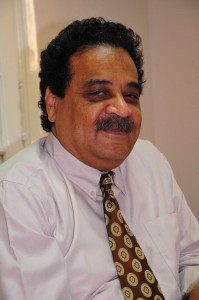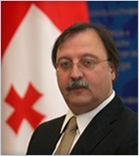
It has been repeated many times in recent months that there exists no alternative to the Muslim Brotherhood in terms of selecting a group capable and organised enough to rule Egypt. Other organisations, it has been claimed, lack unity, do not have enough popular political support, or have no clear vision for a political platform. Despite all these claims, Egypt’s National Salvation Front has tried to present itself as a competent alternative to that of the Muslim Brotherhood.
In order to assess the validity of these claims we must travel back to the beginning of the revolution and take a look at the three primary powers that were responsible for playing a role in its progression. These powers are the army, whose role was defined by their opposition to Gamal Mubarak’s succession of his father’s presidency, the Muslim Brotherhood, and the country’s democratic forces. What would the revolution have been if not for the intervention of the United States green lighting the country’s revolutionary powers to sack and overthrow Hosni Mubarak, only then to give power to Egypt’s Supreme Council for the Armed Forces (SCAF)? At this point in time, as most will recall, it was not the Brotherhood that was the most active and vocal in Egypt’s squares, but rather the country’s various democratic movements, hailing from the nation’s elite and upper-middle classes. It is no surprise that in the immediate days following the revolution, Essam Sharaf, who traced his political leanings back to Egypt’s democracy movement, was selected to be the country’s first post-revolutionary prime minister, with dozens of the movement’s leading figures given positions within his government. It is truly remarkable that SCAF announced the creation of Egypt’s Constitutional Committee at that time, to be run and administered by the Muslim Brotherhood. This was the first clear demonstration of the alliance forming between SCAF and the Brotherhood, or, as I like to put it, the transition of power to the latter.
We can say that the military first took part in the revolution after it asserted that the protesters’ demands and actions were legitimate, solidifying their support for them on 2 February 2011, during the “Battle of the Camel”. The military could have handed power over to the country’s democratic forces during this time, as it was their voices that were the closest to those being heard throughout Egypt’s streets; however with the military’s announcement of the creation of Egypt’s Constitutional Assembly, it was clear that the process of the Brotherhood taking over the reins of power had already begun. We can go even further and say that several days before this process began, when the Mubarak regime, under the leadership of Omar Suleiman, first handed power over to SCAF, that talks had already been underway between the regime, the United States and the Muslim Brotherhood, to pave the way for the rise of the long suppressed group.
At this point the largest and most active of Egypt’s political powers demanded that more power be granted to those revolutionary democratic forces represented, with specific names in hand, and that the buck not stop with Essam Sharaf. SCAF should have followed his appointment with a series of others, placing into power members of Egypt’s democracy movement. However they did not seek to do this and instead went against the wishes of the Egyptian street. They did this for reasons that became clear later, and hinged on their desire to hold onto and preserve their own power. SCAF’s true role was to diffuse and mitigate the revolution, and serve as the bridge between the old regime and the new, led by the Brotherhood. Many will say that the latter were the most well-organised and conservative of all of Egypt’s political forces, a reality which would make them seem appealing to SCAF. Although this may be true, I feel that the determining factor for transition of power to the Muslim Brotherhood had more to do with the position of Europe and the United States than anything else. This position can be traced back to the beginning of US-Muslim Brotherhood cooperation after the events of 11 September 2001, and the launching of the US war on terror.
Mubarak and his administration relinquished power to SCAF, as they were considered one of the primary pillars on which the previous regime rested, and therefore an extension of it, who then took to handing power over to the Brotherhood in two stages. The first consisting of the country’s presidential elections and the triumph of Mohamed Morsi, the second being the removal of Mohamed Tantawi and Sami Hafez Anan, and the return of the army’s cadres to their barracks. However this process did not mean that the role of the army in Egyptian politics has ended. The belief that Egypt must remain a strong, hegemonic country which exercises a powerful position within the region does not only require that the army remain at the heart of such a system, but also requires that its power gradually increase at the expense of the Muslim Brotherhood. SCAF in this regard has often been referred as the “old state”. This has been the scenario in Egyptian politics since Ahmed Shafiq secured 48.5% of votes in the second round of Egypt’s presidential elections, at which point it became clear that the army sought to assert itself on its own behalf as opposed to hiding behind any third party or organisation. This brings us back to the three competing powers that we spoke about at the beginning of the article: the “old state”, which under pressure from the revolution relinquished power to the Muslim Brotherhood; the country’s democracy movement, the vanguard and primary power behind the outbreak and continuance of the revolution; and finally the Muslim Brotherhood itself, which, more or less, has been successful in uniting the country’s other Islamist movements under one banner.
The handing over of power to the Muslim Brotherhood was not inevitable, and was not the result of there being no credible alternative. Do not forget that even at the peak of their power, the Muslim Brotherhood was only able to obtain 42% of seats in parliament, and that during the last referendum, 36% of the country voted “No”. It should also be noted that the Brotherhood has failed to preserve its leadership position within the country’s student organisations, in addition to journalist, veterinarian and pharmacist unions. Is it possible to say the Muslim Brotherhood has successfully reached a compromise with its opposition, reduced the suffering of Egypt’s downtrodden, or taken steps to address the country’s crumbling economy?
Regardless as to whether or not the Muslim Brotherhood is responsible for its own failings or whether the blame lies with the country’s opposition, the Brotherhood has repeatedly clashed with the country’s judicial branch and independent and government media organisations. The logical conclusion to this reality is that finding an alternative to the Muslim Brotherhood is an absolute necessity. Members of the country’s “old state” assert that the time is right for them to reassume power, and re-establish the old regime without Hosni Mubarak. However such actions will only re-launch the revolution and lead to further instability. The logical alternative is to grant power to Egypt’s democracy movement, which will seek to compromise and reach common ground with the country’s hegemonic forces. We feel that only the country’s democracy movement can efficiently manage Egypt’s “old state” and meet the demands of its judiciary and media.


